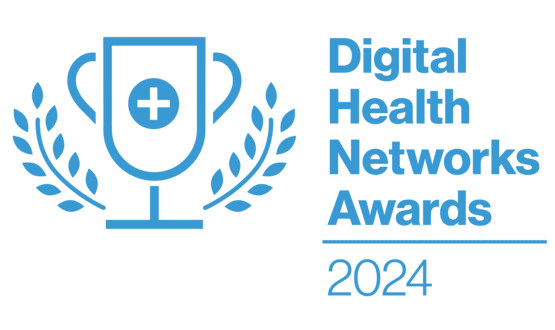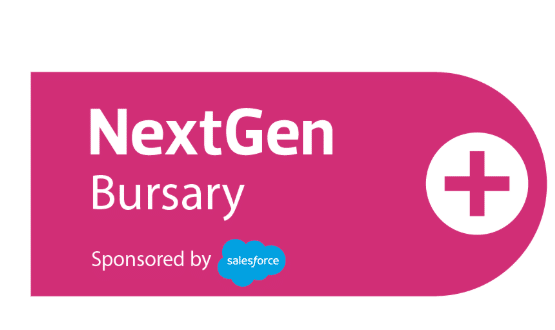Joe’s view: of consent to share
- 19 April 2016

As an adolescent psychiatrist, I frequently deal with the stage of development in which a certain amount of rebellion is quite normal.
Regular readers will know that I have previously referenced Erik Erikson’s stages of development, each of which is typified by what he called a psychosocial crisis.
The successful resolution of the psychosocial crisis allows an individual to progress to the next phase of development. The psychosocial crisis associated with adolescence is that of identity versus confusion.
It is a time at which the teenager tries on a variety of different identities in an attempt to become a freethinking individual separate from the parent.
Naturally, a certain amount of conflict can occur at this time, as the teenager asserts their independence and the parents attempt to maintain the illusion of control until the teenager is sufficiently mature to make good decisions.
For example, the teenager may well adopt opposite views to the parents’ tastes in music and politics which the parents find hard to understand.
Classically, Mark Twain described how as a 16 year old he had been appalled by his father’s ignorance, but how at 21 he was amazed at how much his father had learned.
Fighting over the Falklands
My mate Nic was probably the most genuinely rebellious of our little gang, discovering punk rock, smoking and girls before the rest of us. He lived the words of the Eddie and the Hot Rods teen anthem “Do Anything You Wanna Do”:
Gonna break out of this city
Leave the people here behind
Searching for adventure is the type of life to find
Tired of doing day jobs with no thanks for what I do
I'm sure I must be someone
Now I'm gonna find out who.
Aged 17, he left a good school at which he had excellent prospects to join the army and see the world; against the better judgement of his parents.
A few years later, in 1982, while I was in my second year at medical school, Nic was in the Sir Bedivere waiting to go ashore when an Argentinian Jet swooped in low across Falkland Sound before dropping the British-made bomb “which went through the crane rigging and then through the bow before bouncing off the water and lodging in the side of another ship.
“It did not go off, as it was a high altitude bomb that was dropped from low altitude and therefore had not armed itself. The best kit, but used incorrectly will not work.”
We kept in touch by occasional letter in that pre-mobile phone age and learned of Nic’s narrow escape only weeks later.
I fell out with my late father over the politics of the Falklands war. As far as I was concerned it was Thatcher’s war, and I was therefore opposed to it. I had a good friend in harm’s way.
My father on the other hand, said: “Those islands are there for the asking, but not for the taking.” This infuriated me. He was saying that my friend was risking his life for a prize Argentina could have had if it had just asked politely; but not if it simply took it.
Looking back, my father’s wise words often now come back to me. “There for the asking, but not for the taking.” On reflection he was probably right.
Care.data and its fall out
It’s funny how my father’s words occasionally pop out of my mouth even 20 years after his death. In a conversation about care.data with Ewan Davis in a bar in La Plagne I remarked: “Patient Data is like the Falkland Islands: there for the asking but not for the taking.”
In recent years, the health IT community has tied itself in an increasingly Gordian knot of information governance. It’s been tied by our eagerness to extract big data and get the big research and big quality gains that we are all passionately pursuing.
Unfortunately, in our understandable eagerness, we forgot some of the basics and alienated an intelligent, motivated, technically literate and often just plain right privacy lobby that, try as we might, could not be ignored.
The rebranding of the Information Centre, Caldicott2, the suspension of care.data and the departure of Tim Kelsey still leave us struggling to deliver on the promise of big data in health and care.
The argument goes that getting explicit consent from every citizen is too difficult and that covering off every potential sharing agreement is too complex to even attempt; even though other large organisations that want to share your data do ask your permission – usually at the outset of your contact with them.
Think of your Facebook account or your Google account or your Tesco Clubcard. You are allowed to set your privacy settings wherever you want and also to opt out altogether. There for the asking, but not for the taking.
It’s fair to say that taking this approach has allowed Facebook and Google to flow considerably more data about British citizens than we have managed in health care with our opt-out convolutions.
Cutting the IG knot
Going back to basics, two and a half thousand years ago Hippocrates wrote his famous oath. He stated that patient secrets should remain ”inviolably secret” and nothing should be shared without the patient’s permission.
I would argue that philosophically nothing has significantly changed in the subsequent two and a half millennia, the patient’s stuff should remain inviolable.
But what’s this? As we wait for the outcome of Fiona Caldicott’s latest deliberations, maybe the solution to the information governance Gordian knot is at hand.
On a recent visit to Cumbria to see the excellent work of CCIO William Lumb and his team there was a presentation by Yvonne Salkeld of an Information Sharing Gateway tool which made me cry tears of joy because it was so beautiful and so simple.
Our friends in the North West have allowed us to use this tool in the North East and we have been able to achieve information sharing agreements at a scale and pace between primary and secondary care that I would have thought impossible just three months ago.
Basically, healthcare organisations (hospitals, GP practices, clinical commissioning groups, third sector organisations and so forth) are invited to join a web-based portal. They enter all the relevant details (the name and phone number of their Caldicot Guardian, their IG Toolkit compliance, the systems they are using and the data flows, they can provide and so on).
It is then a simple matter for organisations in the local health economy to decide which other organisations they trust to share information. As simple as ticking boxes on a website.
Circles of trust
My own organisation, Northumberland, Tyne and Wear NHS Foundation Trust, now has in place sharing agreements with local general practices.
This means that, as a psychiatrist, I can access information from the primary care records of more than 450,000 patients in the area, provided I have a legitimate relationship and the patient’s permission to view it.
Unusually, my trust has for several years taken the Facebook approach to confidentiality. We have a conversation with all new patients about their willingness for us to seek and share information with other parts of the health economy for direct care purposes.
The beauty of the Information Sharing Gateway is currently applied only between organisations, but I see no reason why this approach could not be extended to individuals in due course.
Perhaps we could use the emerging patient facing apps being produced by the likes of Emis and TPP to properly record a patient’s preferences regarding the sharing of their data for both primary and secondary purposes. Maybe Spine2 has a role?
Just like organisations, patients should be able to pick their “circle of trust”. The Information Sharing Gateway is a key enabler for local Integrated Digital Care Record projects like The Great North Care Record, the first phase of which is the regional deployment of Healthcare Gateway’s Medical Interoperability Gateway.
Taking asking seriously
Our experience has been that the vast majority of patients are happy to have their data shared for direct care, but a significant and vocal minority have genuine concerns about secondary uses.
Unless we provide the means for them to safeguard their data the benefits of big health data will continue to elude us. There for the asking, but not for the taking. Thank you Cumbria. And thank you Nic. And thank you Dad.
|
Joe McDonald
|





